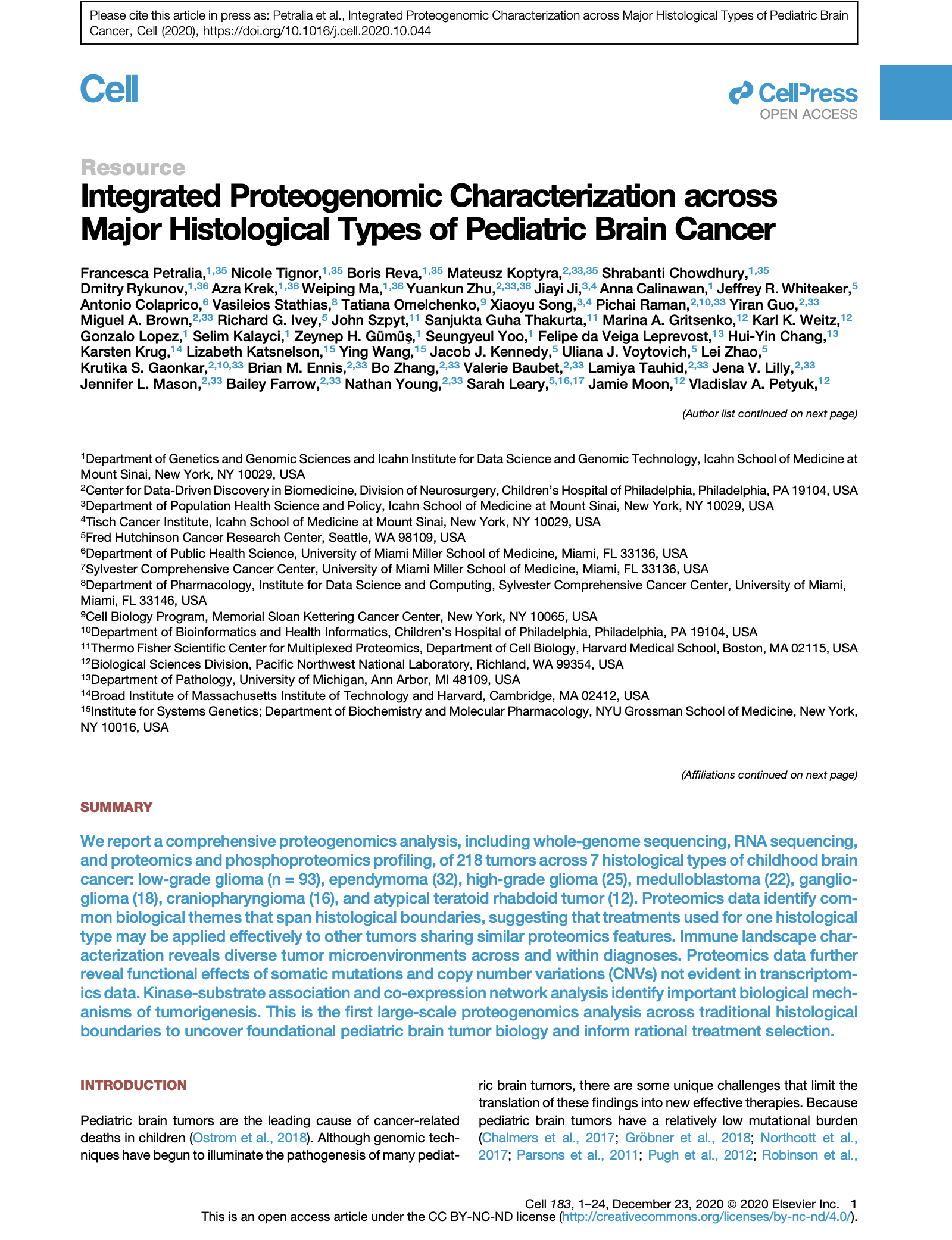In collaboration with the Clinical Proteomic Tumor Analysis Consortium (CPTAC) and Children’s Brain Tumor Tissue Consortium (CBTTC), we have published the first large-scale, comprehensive proteogenomic analysis of 218 tumors across seven histologic types of childhood brain cancer.
Integrated Proteogenomic Characterization across Major Histological Types of Pediatric Brain Cancer
Petralia et al. Cell. Dec 2020
Highlights
• Proteogenomics characterization of 218 pediatric brain tumor samples of 7 histologies
• Proteomic clusters reveal actionable biological features spanning histological boundaries
• Proteomics reveal downstream effects of DNA alterations not evident in transcriptomics
• Kinase activity analyses provide insights into pathway activities and druggable targets
The pediatric brain tumor data can be explored as interactive heatmap with our ProTrack web tool at http://pbt.cptac-data-view.org/
Related press:
First large-scale proteogenomic analysis offers insights into pediatric brain tumors
This study is the first comprehensive survey of genomics (which aims to characterize DNA sequence alterations in a sample), transcriptomics (which aims to quantify copies of RNAs), global proteomics (which aims to identify and quantify proteins), and phosphoproteomics (which quantifies active proteins) across a large cohort of 218 tumor samples representing seven distinct types of brain tumors.
Study offers new clues for treating brain cancer in children
“All in all, this study is fantastic news for the children with brain tumors and their families,” said the University of Alabama’s Van Meir. “Some of the findings are immediately applicable in the clinic, and others reveal new directions for future therapy development.”

